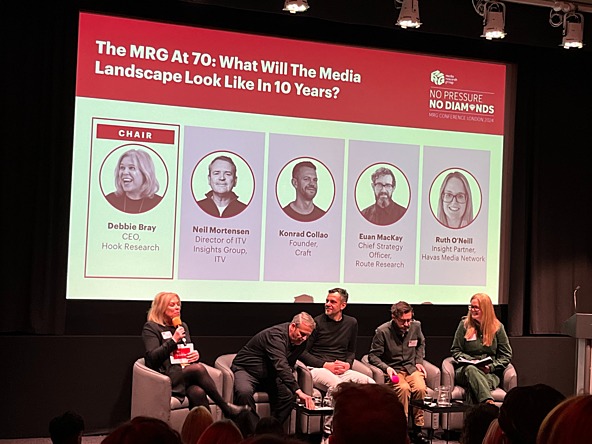Large social media platforms could ‘die’ if they don't change, hears panel

Ruth O’Neill, insight partner at Havas Media Network, told the panel – which covered how the media landscape could change in the next 10 years – that social media would need to adapt to the new ways in which people consume media, in particular the rising popularity of short-form video.
“We are surrounded by content, we’re surrounded by people creating content – not just brands and advertisers – and we are surrounded by people sharing it,” O’Neill said. “Social media platforms have had to adapt to that, so we have more video content, particularly short-form video content.”
Niche platforms could be on the rise over the decade ahead, O’Neill added, naming Discord and Bluesky as recent examples. “Will the platforms exist in their current forms? Will they merge together? Will some die? Will some exist in the metaverse? I think short-form content is here to stay, but I think large platforms will change in the future,” she told the panel.
However, she added that there could be downsides: “All this content creates communities. All these communities can bring people together with shared ideas and shared interests, and that can be very lovely. But that could also be not so lovely, with rising concerns about algorithms, fake news and security, I think the platforms are going to have to do something to change.”
Speaking during the same panel session, Neil Mortensen, director at ITV Insights Group, discussed the backlash ITV faced earlier this year from writers and television producers over a job advert it published for a head of generative AI innovation to lead “AI-driven innovations in content creation” for TV shows and films.
Mortensen said that the backlash to the advert had “misinterpreted the language”, as the role advertised was to help understand the generative AI technologies that are out there now and that could emerge over the next 10 years, and to be better equipped to protect intellectual property rights.
Mortensen said that “the commercial side of our business is embracing all of this stuff, but the creative side of our business is much more wary and there is still a machine versus humans thing going on”.
He added: “We still believe that great creativity needs humans in the process.”

We hope you enjoyed this article.
Research Live is published by MRS.
The Market Research Society (MRS) exists to promote and protect the research sector, showcasing how research delivers impact for businesses and government.
Members of MRS enjoy many benefits including tailoured policy guidance, discounts on training and conferences, and access to member-only content.
For example, there's an archive of winning case studies from over a decade of MRS Awards.
Find out more about the benefits of joining MRS here.














0 Comments